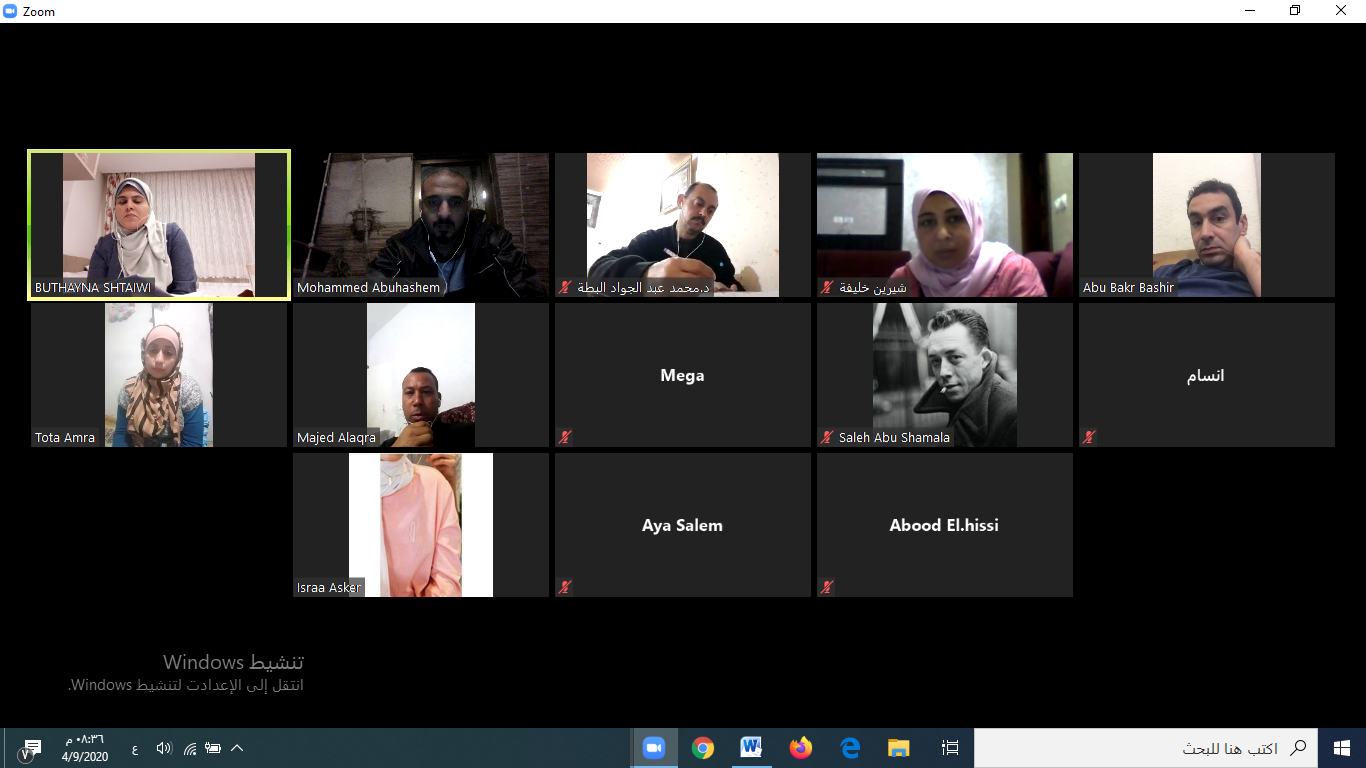
Ref: 35/2020
On Thursday, 09 April 2020, the Palestinian Centre for Human Rights (PCHR), conducted two workshops online via (Zoom), attended by twenty-six persons including students, activists and journalist. The workshops discussed extraordinary powers and restrictions the state of emergency grants the executive authorities, in light of PCHR paper, titled: COVID-19 State of Emergency: Powers and Restrictions Under Palestinian and International Law.
PCHR had issued the paper to outlines powers and restrictions on the authorities in a state of emergency, by defining:
The first workshop was held from 13:00 to 14:00, while the second workshop was from 20:00 to 21:30. Mohamed Abu Hashem, legal researcher at PCHR, opened the two workshops by presenting a brief 15-minute overview of the paper issued by PCHR, then discussions and inquiries were opened for participants.
Participants’ questions focused on the Palestinian President’s powers to extend the emergency state; emergency state restrictions on freedom of expression; powers granted to executive authorities to arrest or search in emergency state; and the impact of emergency state and preventive measures on per-day workers and vulnerable groups, especially persons with disabilities.
Abu Hashem stressed general principles, for example: emergency state powers granted to executive authorities should not be used in an arbitrary manner; the Palestinian President’s powers to extend the state of emergency are constitutional; and emphasized that the state of emergency should be in the narrowest scope and provide dignified life for citizens as much as possible.
This is the first time for PCHR to use Zoom to operate its programs, as the current state of emergency entailed precautionary and preventive measures to combat the spread of coronavirus. The idea was well received by participants, males and females, who asserted its efficiency and convenience as it allowed room for discussions and to exchange information. PCHR intends to carry out similar workshops via Zoom in the future.
It should be noted that due to the challenges imposed by the coronavirus pandemic and the state of emergency that impeded direct contact with the public, PCHR has adopted a special workplan that relies on technology and the internet to connect with beneficiaries, and to hold meetings and communicate with partners and duty bearers.